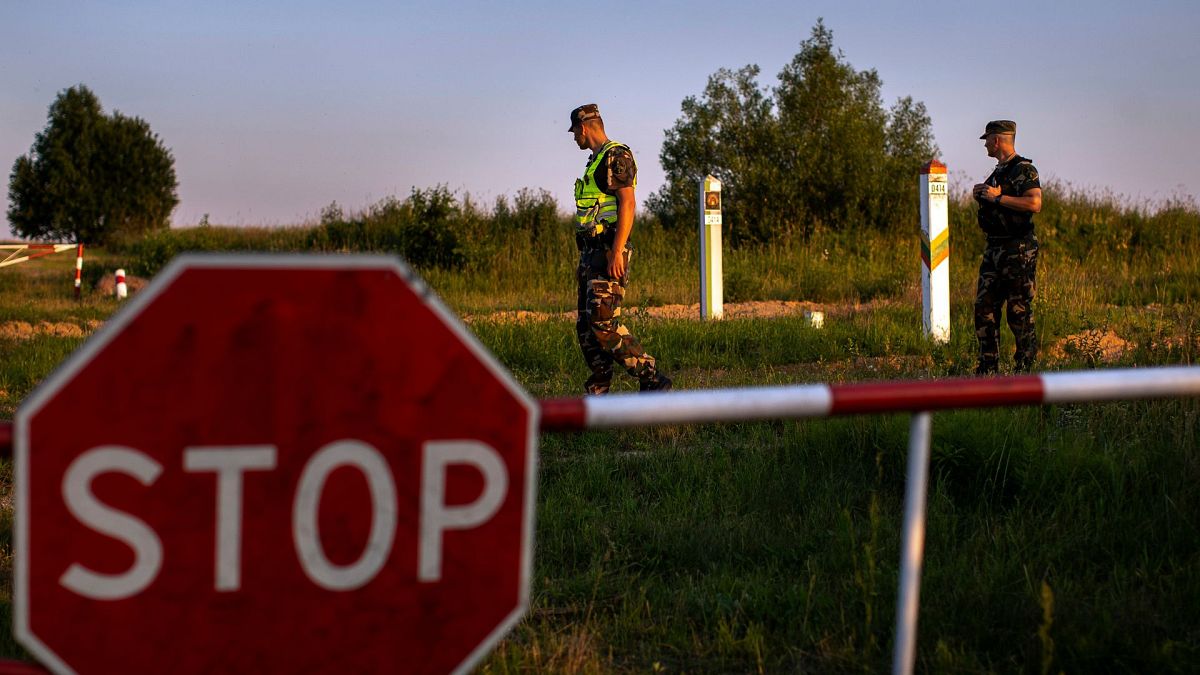A death-bed promise to solve a family mystery took Laura Ancell and her mother on a remarkable, “deeply personal” journey from the south coast of England to Aotearoa’s shores and all the way to Parliament, reports Emma Hildesley.
Sitting next to their beloved father and husband on his death-bed, Laura Ancell and her mother Jayne clasped Billy’s hand and made him a promise that would change the course of their lives.
Growing up in Brighton on England’s south coast, Billy had “always felt like a big part of him was missing” since being told in his 30s that the man who raised him was not his biological father.
The revelation came as a “huge shock” and prompted him to dig through his past in an attempt to learn more about his real father – a man named William Anderson – who had served in the Royal New Zealand Air Force.
In 2006, Billy was in the final throes of lung cancer when Laura and Jayne promised him that they would ensure his biological family in New Zealand knew who he was, and would continue his quest to uncover the truth within their family lineage.
“I had a squeeze to my hand, and I looked at Billy, and he opened his eyes and looked at me and Laura and that was him acknowledging that he wanted us to fulfil that promise,” Jayne said.
The rest of the story is revealed throughout a new eight-part podcast series produced by BBC Sounds, called DNA Trail: The Promise. It’s full of many twists, turns and shocking false dawns.
Laura told 1News about the “emotional rollercoaster” searching for her own identity, and her ensuing fight to have her New Zealand lineage recognised with official citizenship by descent.
“There’s something powerful about hearing someone else’s journey – it can make you feel less alone, give you courage, and maybe even help you find answers you weren’t expecting,” she said.
“When we were on that journey we realised how many people are on a similar path [in] searching for their roots. It’s a deeply personal experience, but it’s also universal.”
Laura, now 36 and a BBC journalist, admitted she wasn’t always met with open arms whilst peeling back the layers of her heritage.
“Sometimes, finding the truth means disrupting the status quo of someone else’s family, where long-held secrets can come to light and not everyone is ready to face them.”
“How do we balance our right to know where we come from with the reality that pursuing the truth can be painful for others? How can we create space for more open conversations about the past? By talking about it, we can help others find the courage to search, the tools to approach difficult truths, and the support to process whatever they uncover.”
The ‘light’ and ‘shade’ of life
Without giving away too many spoilers, the podcast deals with some deeply emotional and, at times, painful subjects including family secrets, identity and loss.
Laura said even in the heaviest moments, there was room for warmth, laughter, and absurdity.
“When you’re in the middle of an emotional journey, it can be difficult to step back and see where humour fits. But working with others on this project helped – having fresh ears to highlight moments of levity ensured we found a balance between light and shade.
“I think that contrast makes the podcast more relatable because, ultimately, that’s how life works, moments of laughter even in the middle of something profound,” she said.
Her personal fight for NZ citizenship
The quest for the truth about her family also opened up Laura’s journey to formalise her New Zealand ancestry.
In New Zealand, there are three main types of citizenship: by birth, by descent and by grant. It’s a formal recognition of identity, and one that Laura struggled to obtain for herself because of her father’s “illegitimacy”.
“My dad was the son of a New Zealander, so I thought he would have been a citizen by descent,” she explains.
Laura said New Zealand’s Department of Internal Affairs told her that because her dad had been born to unmarried parents, he would not have been granted citizenship by descent – despite his lineage.

As an individual, unrelated to her work as a journalist in the UK and New Zealand, she petitioned for the House of Representatives to amend the Citizenship Act 1977 to allow people whose parents were not NZ citizens by descent due to having been born out of wedlock to apply for citizenship under section 9(1)(b) of the Act.
Laura said because her dad passed away when she was 17, she wanted to claim citizenship “almost on his behalf and in recognition of our connection with Aotearoa New Zealand”.
“My journey has been about reconnecting with family, and I wanted my dad to be formally acknowledged in the way that he would have had he not been born ‘illegitimate’,” she said.
Laura said she was unable to apply for citizenship by descent because of this “wedlock” issue, and the Minister of Internal Affairs declined her application via “exceptional circumstances”.
“With both routes closed off to me, I made a complaint to the Human Rights Commission who asked the DIA to mediate with me. But despite saying they were willing to get round the table, they then withdrew that offer saying that their internal review found no unlawful discrimination.”
Challenging ‘archaic’ laws
Laura continued to challenge the laws and was invited to reapply under the “exceptional circumstances”, where her citizenship was finally approved.
“However, I really wanted to apply by descent, [which is] the part of the law which acknowledges familial connections. But I couldn’t because the law at the time of my dad’s birth required him to be born to married parents. I think that’s archaic and doesn’t align with modern day values.
“During WW2 there were a number of war babies who this would affect and of course the marital status of the parents was entirely out of their control. Ideally the Petitions Committee will recommend a tweak to the legislation which will give a proper pathway for people like my dad and me to apply for citizenship in a way which acknowledges familial connection and lineage, just as those whose parents were married at the time could.
“If the decision is positive, it would mean others with a Kiwi parent who have always had a legitimate connection to New Zealand can finally be recognised as citizens and reconnect with their whakapapa and heritage.”
Laura Ancell said she hoped the Petitions Committee would recognise the historical injustices of the law. (Source: Supplied)
‘Ultimately, I feel proud’
Laura said bringing the story to life had been “an emotional rollercoaster”.
“I feel a mix of excitement, vulnerability, and a little nervousness,” she said. “I hope it resonates with people, sparks conversations, and maybe even helps others on their own journeys.”
She said the process of producing the podcast made her reflect on family, and on what she had lost and gained in the pursuit of truth.
“There have been tears, but also moments of joy – especially when we’ve found new connections and filled in missing pieces of our family story.
“Ultimately, I feel proud. No matter how people react, I know this podcast is an important part of my story, my dad’s legacy, and a step toward helping others navigate their own histories.”

DNA Trail: The Promise is available to listen to now as a box set on BBC Sounds.













